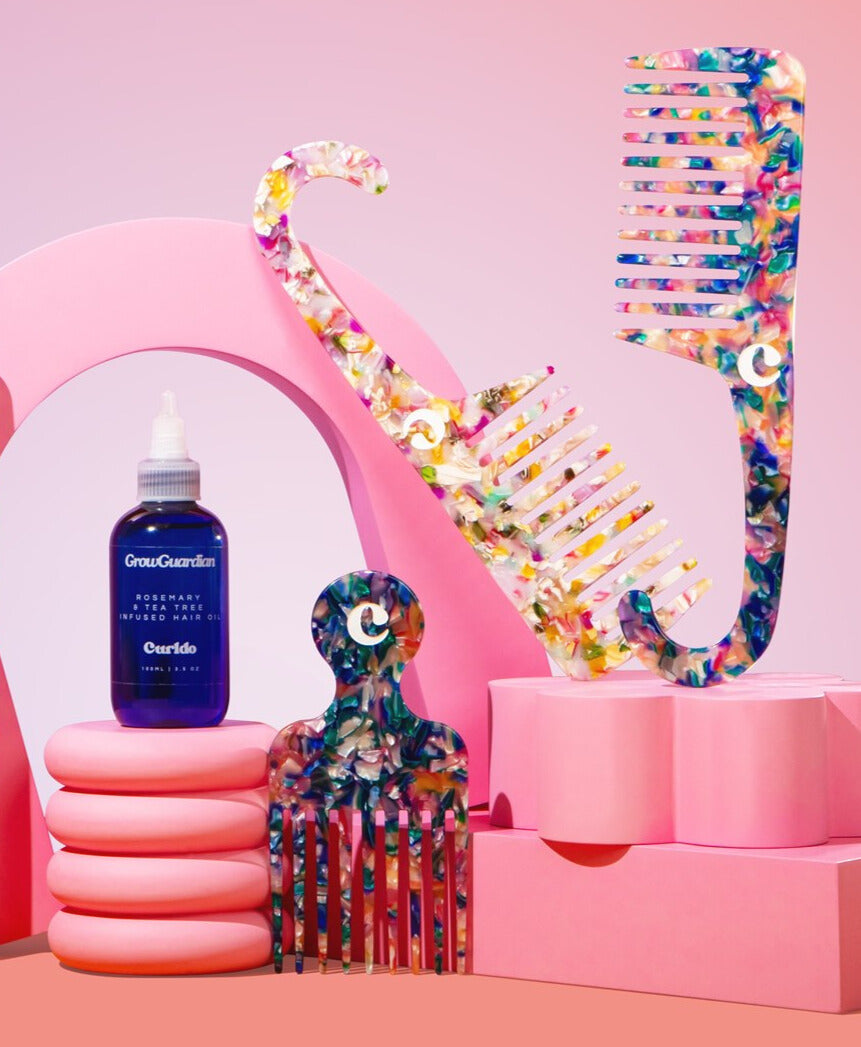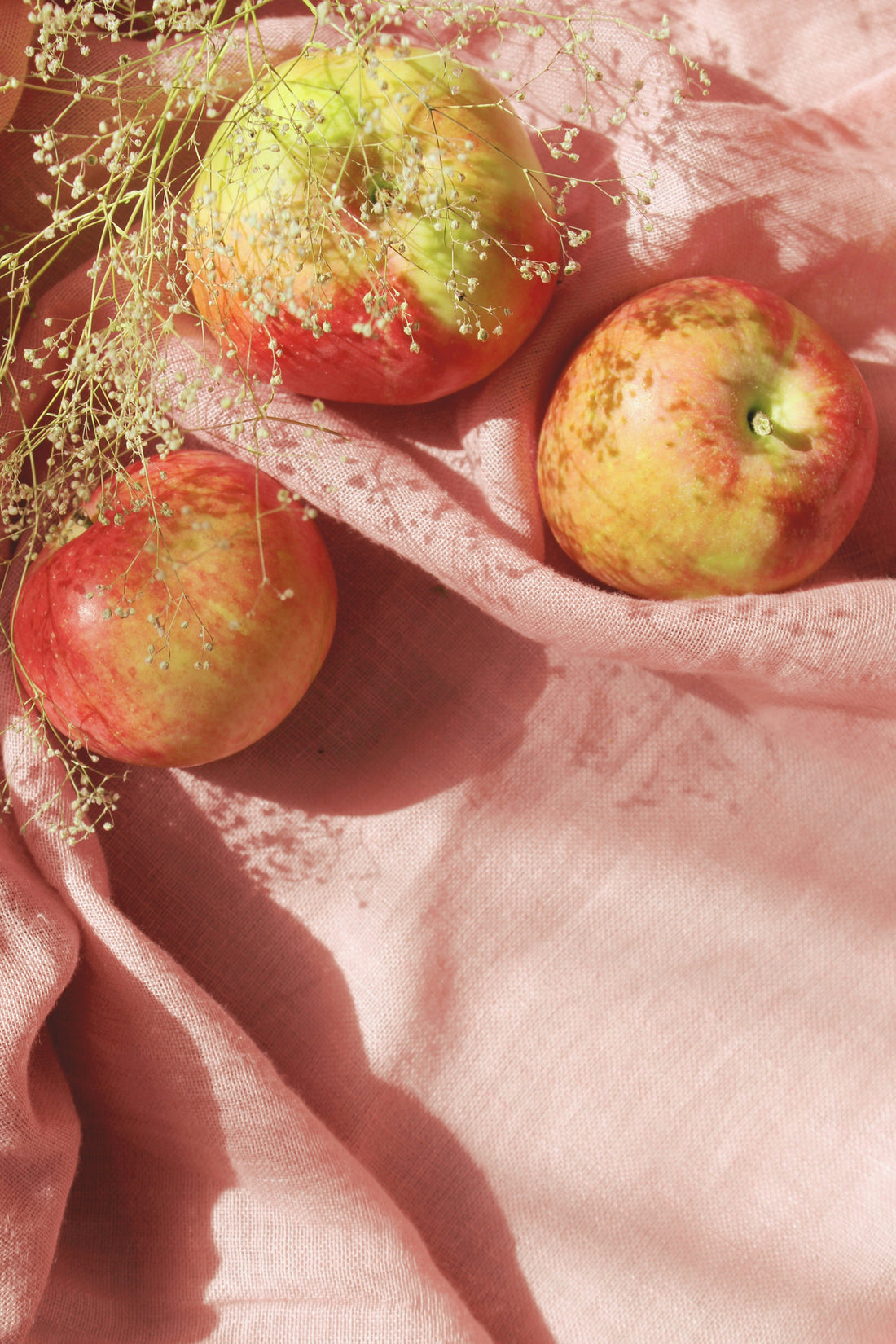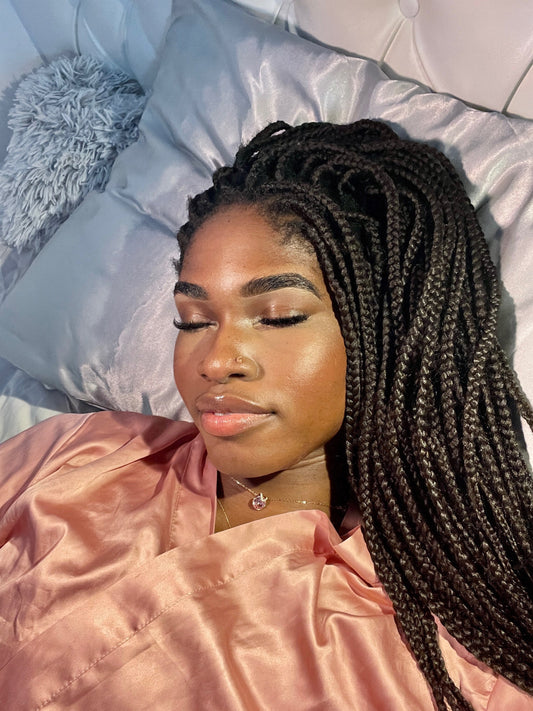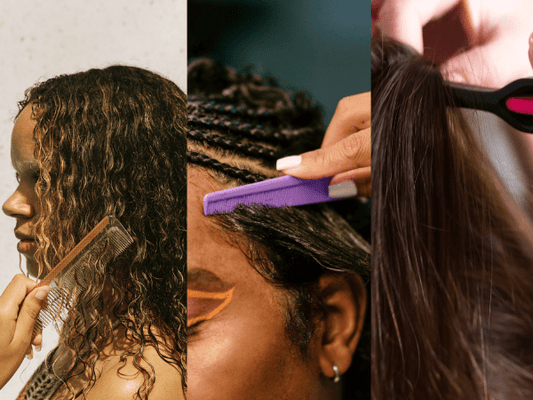The Science Behind Apple Cider Vinegar for Hair
ACV is made through the fermentation of apple cider, resulting in a potent liquid rich in acetic acid, vitamins, minerals, and other beneficial compounds. Its acidity is close to that of human hair, making it an excellent product for restoring the natural pH balance of the scalp and hair. This balance is crucial for maintaining the scalp's health and keeping hair cuticles closed, which ensures hair remains strong, elastic, and shiny.
Benefits of Apple Cider Vinegar for Scalp and Hair
1. Restores pH Balance: The slightly acidic nature of ACV helps balance the scalp's pH, which can be disrupted by alkaline hair products. A balanced scalp pH is essential for controlling oil production, reducing dandruff, and preventing bacterial and fungal growth.
2. Cleanses and Clarifies: ACV effectively removes product buildup, excess oil, and impurities from the scalp and hair without stripping natural oils. This deep cleansing action unclogs hair follicles, promoting healthy hair growth.
3. Conditions and Detangles: The acetic acid in ACV smoothes hair cuticles, making hair softer, easier to detangle, and less prone to breakage. It acts as a natural conditioner, leaving hair smooth and silky.
4. Adds Shine: By flattening the hair cuticle, ACV increases hair's ability to reflect light, resulting in a natural, glossy shine.
5. Promotes Hair Growth: By improving scalp health, unclogging follicles, and ensuring optimal conditions for hair growth, ACV can contribute to longer and stronger hair.
How to Use Apple Cider Vinegar for Hair
1. ACV Rinse: The most popular way to use ACV is in a rinse. Mix one part ACV with two to three parts water, depending on your scalp sensitivity. After shampooing, pour the mixture over your scalp and hair, massaging gently. Leave it on for a couple of minutes before rinsing thoroughly. You can condition your hair afterward, but many find it unnecessary due to ACV's natural conditioning properties.
2. Scalp Treatment: For dandruff or itchy scalp, apply the ACV mixture directly to the scalp with a cotton ball or spray bottle. Leave it on for up to 10 minutes before washing your hair as usual. This can help soothe irritation and combat flakiness.
3. Hair Mask Enhancer: Add a tablespoon of ACV to your favorite DIY hair mask ingredients for an extra boost of shine and conditioning. The ACV will help the mask's nutrients penetrate more deeply into the hair shaft.
Tips for Using Apple Cider Vinegar
- Always Dilute: Pure ACV is highly acidic and can irritate the skin and scalp if not diluted.
- Patch Test: If you have sensitive skin, perform a patch test on a small area of your scalp before applying ACV all over.
- Use Sparingly: Overuse of ACV can lead to dryness, especially for those with dry hair or scalp. Limit ACV rinses to once a week or less.
- Choose Raw, Unfiltered ACV: For the best results, opt for raw, unfiltered ACV with the "mother." The mother contains beneficial enzymes and nutrients.
- Rinse Well: Ensure you rinse your hair thoroughly after an ACV treatment to remove any lingering acidity.
Conclusion
Apple cider vinegar is much more than a kitchen staple; it's a versatile hair care ingredient that offers numerous benefits for the scalp and hair. By incorporating ACV into your hair care routine, you can enjoy a more balanced scalp, cleaner and shinier hair, and overall improved hair health. As with any hair care treatment, individual results may vary, and it's important to adjust the frequency of use to suit your specific hair type and needs. With its natural, cost-effective, and easy-to-use qualities, ACV is indeed a miraculous solution for anyone seeking to enhance their hair's beauty naturally.











